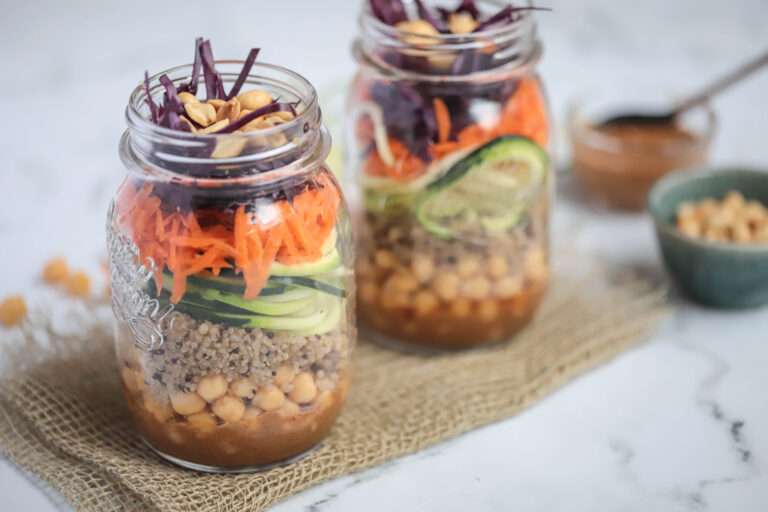In the journey of life, change is the only constant. As we strive to improve our health and wellness, we often find ourselves at crossroads, needing to let go of old habits and embrace new ones. This blog post is a guide to help you navigate these changes, one step at a time. It emphasizes the power of small, continuous improvements and the benefits of a plant-based approach to diet. It also provides practical tips and thought-provoking questions to help you stay on track. So, whether you’re just starting out on your wellness journey or looking for ways to keep progressing, this post is for you. Let’s embark on this journey together, towards a healthier, happier you.
Embrace Change, One Step at a Time
As you embark on your health journey, it’s important to acknowledge that your old routines may no longer serve your new goals. This is not just acceptable, but a necessary part of the process. Progress is often a series of small, sometimes imperceptible, improvements that accumulate over time. It’s the conscious choice to opt for water over soda when dining out. It’s the deliberate decision to park your car further from the entrance of the grocery store to incorporate more steps into your day. Each of these seemingly minor decisions significantly impacts your physical and mental health.

A study published in the Journal of the American Dietetic Association found that people who drank water before meals consumed an average of 75 fewer calories at each meal. While this may seem insignificant in the short term, over the course of a year, it adds up to about 27,000 fewer calories, or roughly eight pounds of body weight. This illustrates the power of small, consistent changes in our daily habits.
Read: THE SECRET TO REALISTIC WEIGHT LOSS GOALS: DISCOVER HOW TO LOSE WEIGHT EFFECTIVELY!
Focus on Continuous Improvements
Instead of solely focusing on your end goal, it can be beneficial to shift your attention to the continuous improvements that will ultimately lead you to your objective. By breaking down your larger goal into small, daily tasks, your goal can feel more achievable. As you persist with your wellness goals and strive to improve by just 1% each day, you’ll eventually look back and marvel at the progress you’ve made.

The concept of improving by 1% each day is not just motivational rhetoric, but a strategy backed by science. A study led by British cycling coach Sir Dave Brailsford demonstrated that making a 1% improvement in a range of areas was more effective than trying to improve one thing by 100%. This approach led to a dramatic improvement in the performance of British cyclists, underscoring the power of small, continuous improvements.
Remember, you’re not alone on this journey! We’re here to assist you in developing healthier habits around the food you eat, and to provide education and support throughout your wellness journey.
The Power of a Plant-Based Approach
A wealth of research has highlighted the power of a plant-based diet as a sustainable strategy for weight loss. Notably, individuals who predominantly consume plant-based diets tend to weigh, on average, up to 13.6kg (30 lbs) less than the general population. A study published in the Journal of the American College of Nutrition found that participants who adhered to a plant-based diet for 18 weeks shed an average of 4.2kg (9.25 lbs). This finding is particularly significant when compared to the results of other weight loss strategies, underscoring the potential of a plant-based approach.
Read: EMBRACING VEGANUARY: DISCOVER THE PLANT-BASED HEALTH BENEFITS

Practical Steps to Embrace a Plant-Based Diet
Step 1: Explore Plant-Based Recipes Leverage the power of the internet to discover a plethora of plant-based recipes. The online world is brimming with a variety of delicious and nutritious options waiting to be explored.
Step 2: Bookmark Your Favorites Identify two recipes that pique your interest and bookmark them. This will ensure easy access in the future and help you build a repertoire of go-to plant-based meals.
Step 3: Plan a Meal and Prepare a Shopping List Choose one of these meals to prepare and add the necessary ingredients to your shopping list. This simple act of planning can significantly influence your journey towards a healthier lifestyle.
Read: 6 FOODS YOU SHOULDN’T CUT OUT IF YOU’RE TRYING TO LOSE WEIGHT
A study published in the International Journal of Behavioral Nutrition and Physical Activity found a positive correlation between meal planning and a healthier diet, as well as a lower prevalence of obesity. By choosing to plan your meals, you’re already taking a significant step towards better health.
Food for Thought
The allure of meticulously planning your entire week’s meals might be strong, but it’s worth contemplating the merits of starting small – perhaps with just a single meal that you can prepare in bulk. By setting realistic expectations and taking incremental steps, you significantly enhance your chances of success. Remember, this program is specifically designed to guide you on your journey towards improved health.

Sharing your health goals and meal plans with your family not only simplifies the process but also allows your loved ones to partake in the benefits of healthier eating. A study published in the International Journal of Behavioral Nutrition and Physical Activity found that “sharing health goals with others can increase your chances of success”. Therefore, by involving your family in your health journey, you’re not just making the process easier, but also setting yourself up for success.
Read: AVOID THESE 4 COMMON WEIGHT LOSS MISTAKES
Stay Engaged
Keep an eye out for more articles and thought-provoking content on a diverse range of topics, including healthy eating, fitness, and goal setting. We’re here not just to provide information, but to challenge you to take action. After all, as the saying goes, “the journey of a thousand miles begins with a single step.” In the realm of health and fitness, inaction yields no results!
Ask Yourself This:
Consider this: on a scale from 1 to 10, how closely does your current nutrition align with your health goals? What changes could you make to increase your score? In other words, what obstacles are currently hindering your progress? What small step can you take today to improve your score? Over the coming weeks, we’ll delve deeper into these questions, providing you with the tools and knowledge to navigate your health journey successfully.





